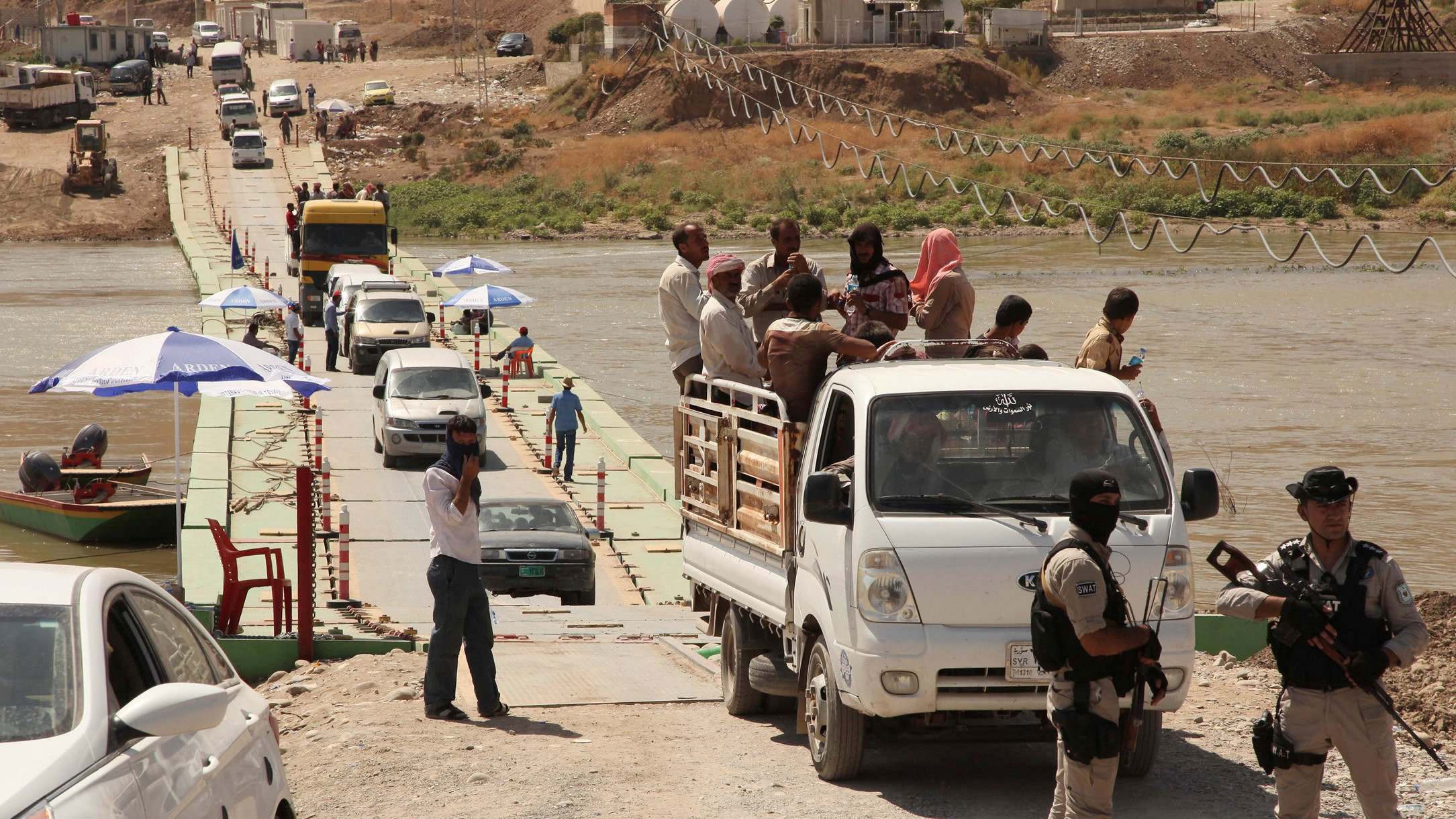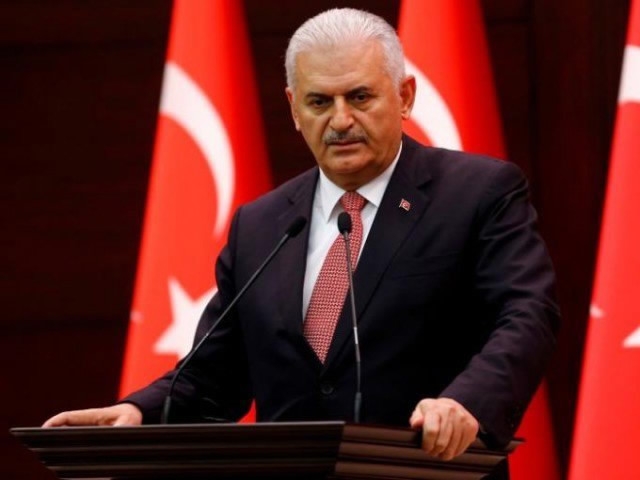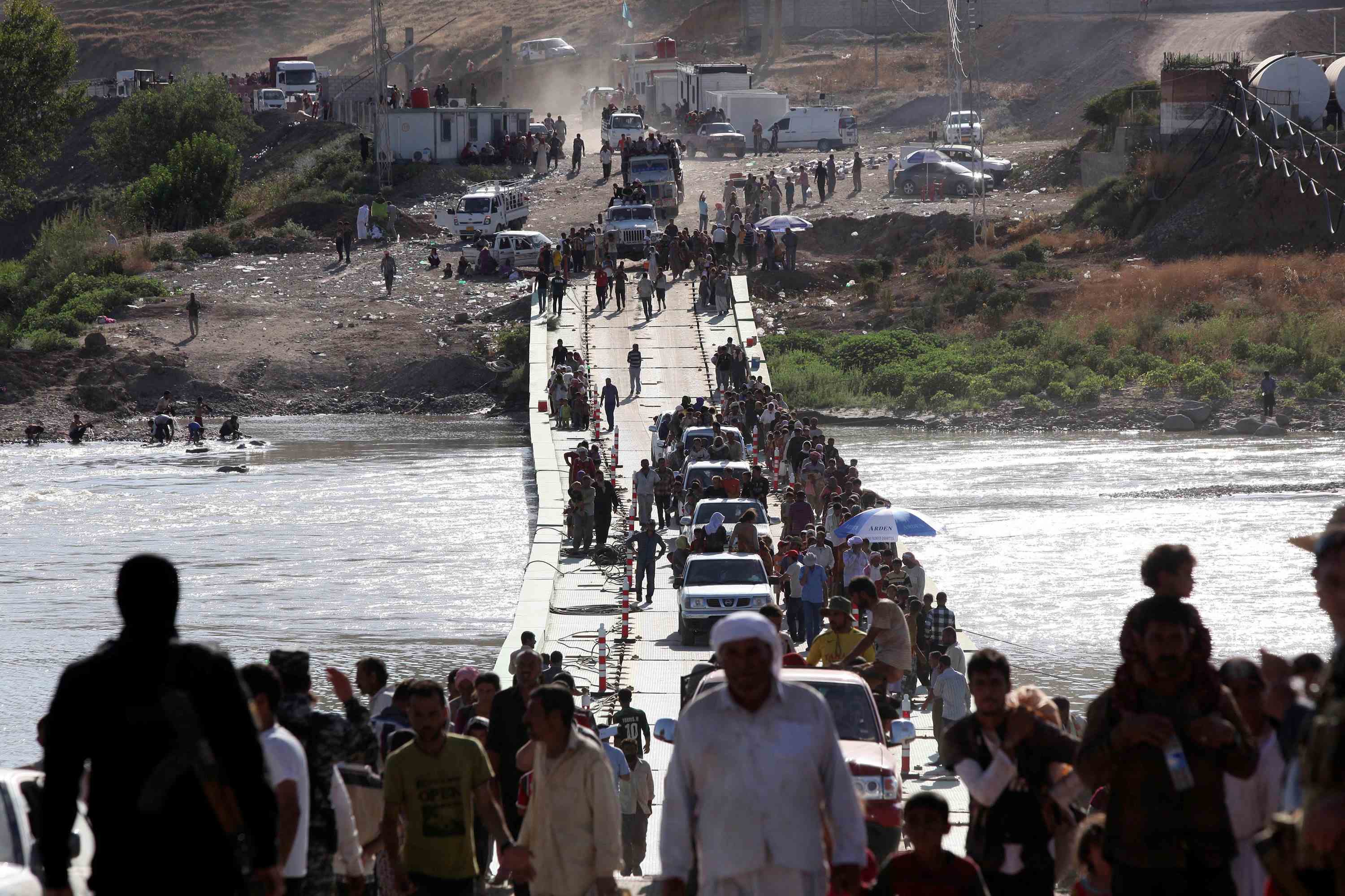
Politics
20:48, 31-Oct-2017
Iraqi forces to redeploy in border crossings with Turkey
CGTN

The Iraqi forces will redeploy in two main crossing points with Turkey, the Iraqi military said Tuesday.
"A team headed by the Iraqi Army's Chief of Staff, Othman al-Ghanmi, conducted a visit to the crossings of Faysh Khabur and Ibrahim al-Khalil to determine the security requirements," the media office of the Joint Operations Command (JOC) said in a statement.
Turkish Prime Minister Binali Yildirim also confirmed that Turkey had agreed to open another border gate with Iraq, as part of a route that would lead to the city of Tal Afar, some 40 kilometers west of Mosul and home to a predominantly ethnic Turkmen population.

Turkey's Prime Minister Binali Yildirim addresses the media in Ankara, Turkey, June 27, 2016. /Reuters Photo
Turkey's Prime Minister Binali Yildirim addresses the media in Ankara, Turkey, June 27, 2016. /Reuters Photo
"Habur border gate has been handed over to the central government as of this morning," Yildirim told members of his ruling AK Party in parliament. "The current route, heading down to Kirkuk will continue. We will start to put into action another border gate through Tal Afar in the short term, in agreement with the Iraqi government."
The Iraqi forces are pushing to redeploy in all the areas that the semi-autonomous Kurdish region had extended after 2003, the statement said.
During the past few days, a joint team from commanders of Iraqi federal forces and Kurdish Peshmerga held a series of meetings in Mosul aiming at ceasefire between the two sides, as the Iraqi troops pushed to seize the disputed areas claimed by Baghdad and the region, in addition to the border crossing points.
The team has made some progress and managed to agree on many disputed points.
On October 28, Ghanmi told reporters after the joint team meeting "we have reached an agreement on some points, but there are sticking points that still need to be resolved."

FILE PHOTO: Displaced people from the minority Yazidi sect, fleeing the violence in the Iraqi town of Sinjar, re-enter Iraq from Syria at the Iraqi-Syrian border crossing in Fishkhabour, Dohuk province, August 10, 2014. /Reuters Photo
FILE PHOTO: Displaced people from the minority Yazidi sect, fleeing the violence in the Iraqi town of Sinjar, re-enter Iraq from Syria at the Iraqi-Syrian border crossing in Fishkhabour, Dohuk province, August 10, 2014. /Reuters Photo
Ghanmi also said "positive atmosphere" prevail in the meeting between the commanders of the federal and Peshmerga forces, adding "there is a need for withdrawal of the Peshmerga to the regional border before 2003."
The joint team was formed to avoid military confrontations between the two sides after Thursday clashes that occurred as the government troops advanced to seize more disputed areas, in addition to Faysh-Khabur area near the Iraqi-Syrian-Turkish border and to seize the main border crossing point of Ibrahim al-Khalil between Iraq and Turkey.
On October 16, Iraqi Prime Minister Haider al-Abadi, who is also Commander-in-Chief of Iraqi forces, ordered government forces to enter the oil-rich Kirkuk province in northern Iraq to regain control of the ethnically-mixed disputed areas.
The Kurds consider the northern Kirkuk province and parts of Nineveh, Diyala and Salahudin provinces as disputed areas and want them to be incorporated into their region, a move fiercely opposed by the Arabs and Turkmens in the region as well as the Iraqi central government.
Tensions have been running high between Baghdad and the region of Kurdistan after the Kurds held a controversial referendum on the independence of the Kurdistan region and the disputed areas.
Source(s): Reuters
,Xinhua News Agency

SITEMAP
Copyright © 2018 CGTN. Beijing ICP prepared NO.16065310-3
Copyright © 2018 CGTN. Beijing ICP prepared NO.16065310-3